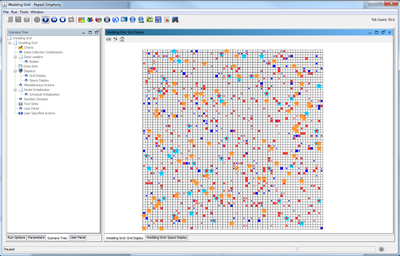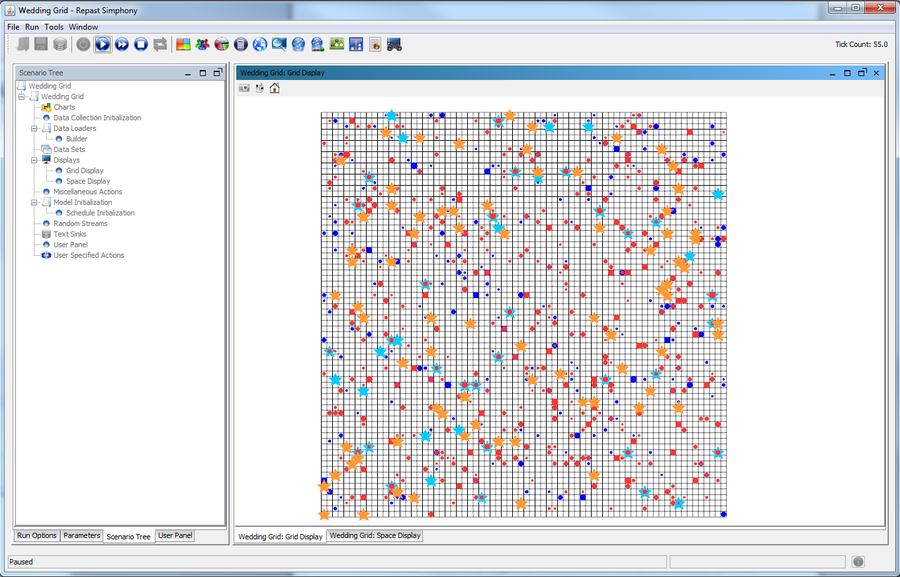Wedding Doughnut (1.0.0)
Here we have an agent-based model designed to demonstrate the potential synergies between ABM approaches and statistical demographic studies of populations. We aim to take advantage of the strengths of both disciplines – the statistical demographic elements provide strong empirical relevance, while the ABM elements allow for the study of the social mechanisms underlying partnership formation.
The model is implemented in Repast Simphony 2.0 beta, and the code is written entirely in Java. The package uploaded here contains all the model code, all the parameters used in our default scenario, and CSV files containing the relevant fertility and mortality rates for the UK population from 1951 onward.
The data used here was collected from the Office for National Statistics in the UK, and from the Human Mortality Database. All of this data is freely available online for no charge.

Release Notes
Associated Publications
Silverman, E., Bijak, J., Noble, J., Cao, V., Hilton, J. (2012). Semi-Artificial Models of Population: Connecting Demography with Agent-Based Modelling. Accepted to the 4th World Congress on Social Simulation, Taipei, Taiwan, 4-7 September 2012.
This release is out-of-date. The latest version is
1.1.0
Wedding Doughnut 1.0.0
Submitted by
Eric Silverman
Published Dec 20, 2012
Last modified Feb 23, 2018
Here we have an agent-based model designed to demonstrate the potential synergies between ABM approaches and statistical demographic studies of populations. We aim to take advantage of the strengths of both disciplines – the statistical demographic elements provide strong empirical relevance, while the ABM elements allow for the study of the social mechanisms underlying partnership formation.
The model is implemented in Repast Simphony 2.0 beta, and the code is written entirely in Java. The package uploaded here contains all the model code, all the parameters used in our default scenario, and CSV files containing the relevant fertility and mortality rates for the UK population from 1951 onward.
The data used here was collected from the Office for National Statistics in the UK, and from the Human Mortality Database. All of this data is freely available online for no charge.

